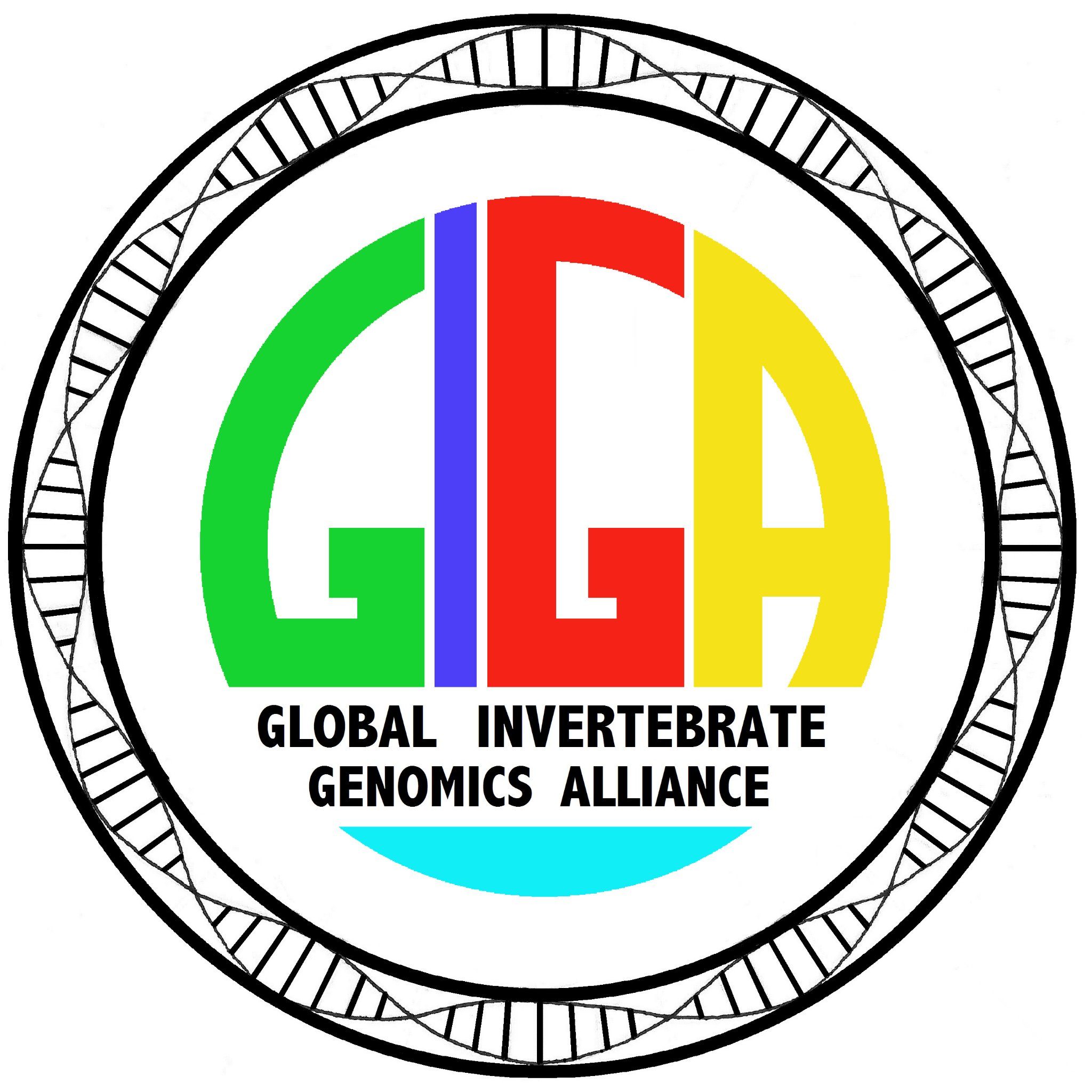GIGA is please to announce a new sponsorship initiative for Principal Investigator (PI)-led whole genome projects. Please review details in the document below:
Our Vision
Our vision is to realize and promote cleaner waters that sustain biodiversity in both natural and human-impacted habitats.
“Clean, unpolluted waters host more biodiversity than disturbed ones.” — GIGA New River Research Team
Funding Provided by: 
The Project
The non-profit Global Invertebrate Genomics Alliance (GIGA) has been awarded a 2023 Climate Change and Human Health Seed Grant by the Burroughs Wellcome Fund. The primary aim of our project is to determine the current, baseline health of the New River of Fort Lauderdale where it enters the Sistrunk community in South Florida. This will be accomplished using state-of-the-art molecular microbiology methods. A second goal of this project is to form new alliances among diverse communities – sciences, academia, social sciences, and resident stakeholders in the context of conserving biodiversity and climate change.

New River Our Home Project – Community Report (6/6/24)
Our Methods
A baseline of public climate literacy within the Sistrunk neighborhood will be assessed through a pre-test survey instrument at the initial citizen science event introducing the project and working to gain community participation and interest. Biological sampling results will be shared with the community through a series of inter-generational public education and engagement activities including citizen science, and science, technology, engineering, art, and mathematics (STEAM) workshops to bolster interest, knowledge and understanding of how humans impact our environment, historically, contemporarily and the actions that are needed now in order to ensure a viable future for our community and our species. The intersections of biology, health, human impacts on the environment and climate change will be key factors of discussion and deliberation. Factsheets/ checklists will be designed to distribute to participating households as a reminder and reference to information exchanged about how to reduce pollution and climate related human health disparities and what steps can help to increase the quality of our riverine ecosystem and our lives and longevity as residents within the New River biome. A post-test survey instrument delivered at the conclusion of the second biannual citizen science workshop event will assess the extent to which the project was successful in increasing the climate literacy of Sistrunk community residents.
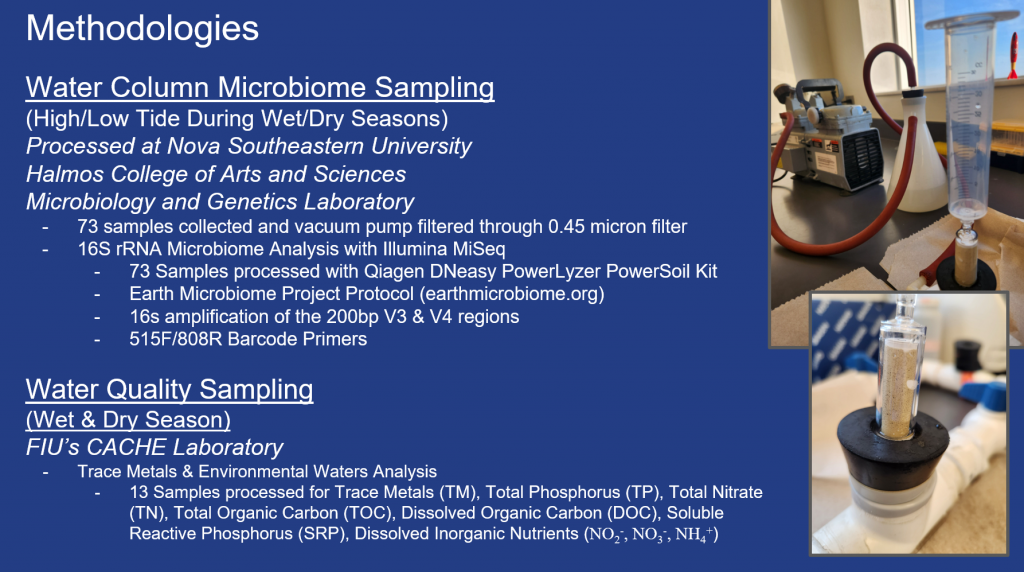
Personnel
- Prof. Jose V. Lopez, Principal Investigator
- Dr. Tara Chadwick, Co-PI
- Dr. George Duncan
- Dr. Alcee Hastings II
- Stacy Brown, Graduate Research Assistant
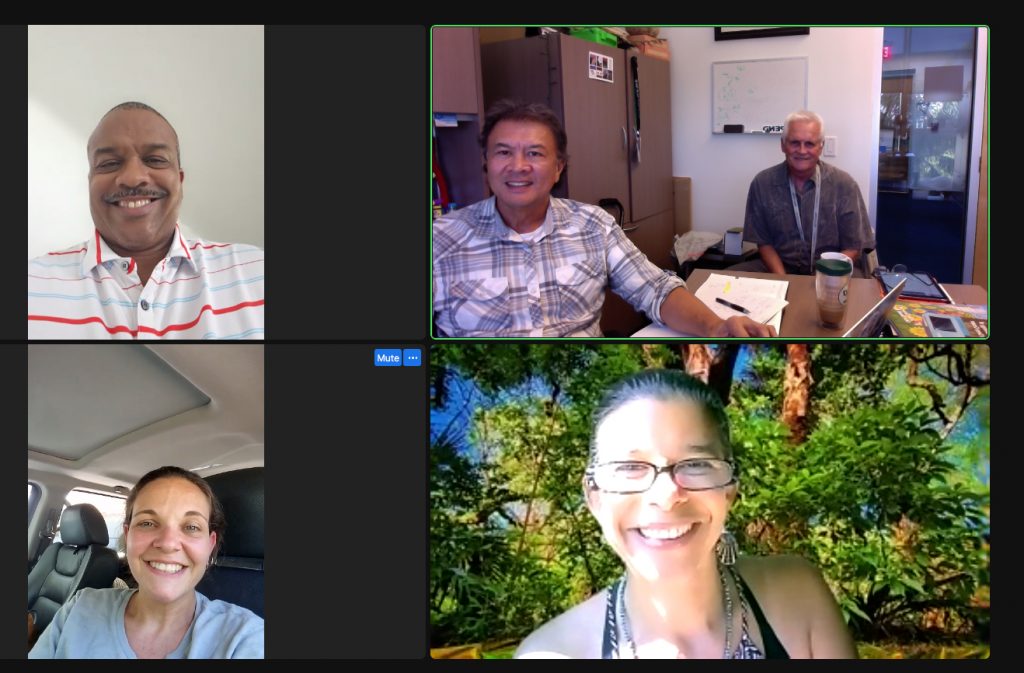
Study Sites
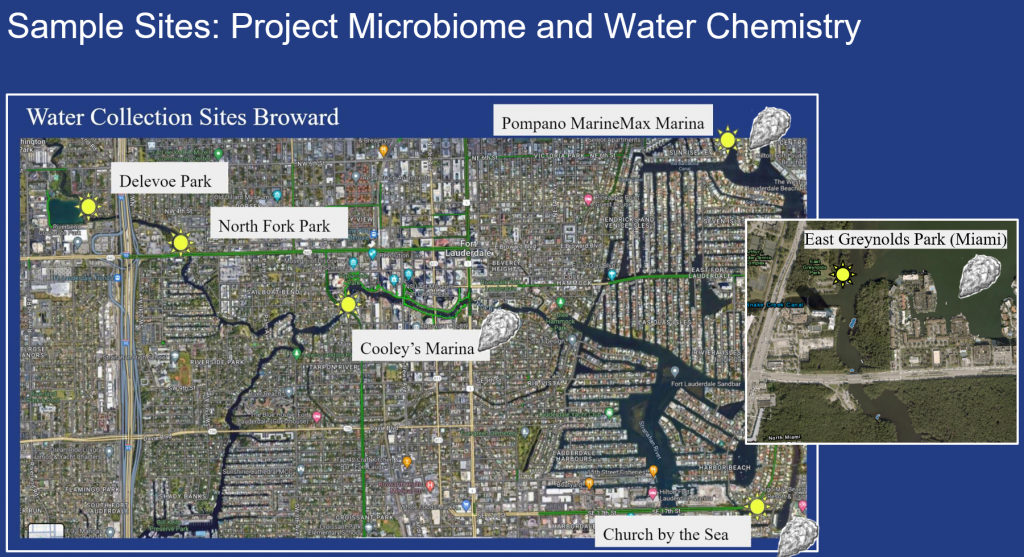
Buroughs Wellcome Fund supported phase one of the project which included conducting baseline water quality assessments at sites (not yet mapped but reported to have oyster populations) along the New River, Intracoastal and Pompano Beach in Broward and in East Greynolds Park in Miami. (3) sites, Delevoe Park, North Fork Riverfront Park, and Cooley’s Marina are part of the Sistrunk Sites and (3) sites, Pompano Marina, Church by the Sea and East Greynolds Park were confirmed oyster sites.
Results

Health concerns are voiced by residents who use the waterways frequently, this study indicated a higher abundance of Pseudomonadaceae along the New River sites and both Sporicthyaceae and Comamonadaceae across the sites during the wet season. A higher abundance of Cyanobiaceae, Rhodobacteraceae and Actinomarinaceae were present during the dry season.
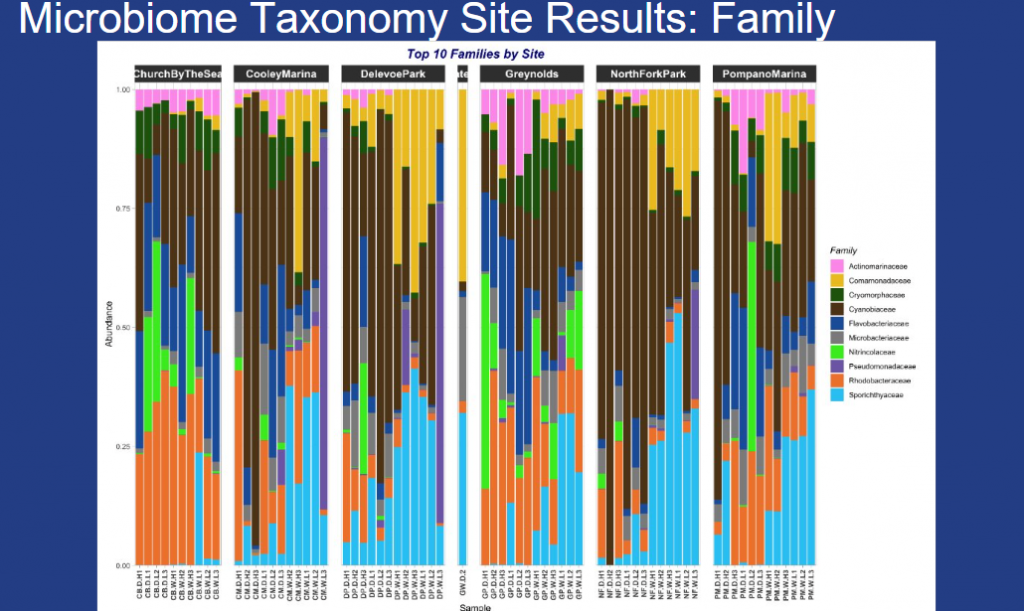
Microbial abundance varied across the study sites with Cyanobiaceae and Comamonadaceae more common along the Sistrunk Freshwater sites. Actinomarinaceae, Rhodobacteraceae, Flavobacteriaceae and Nitrincolaceae were more abundant in the saltwater sites.
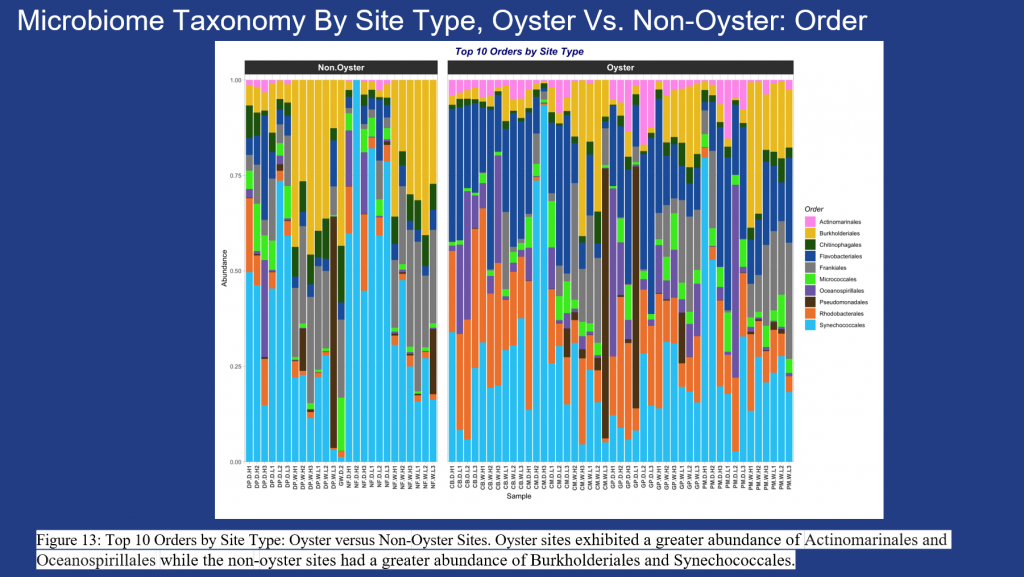
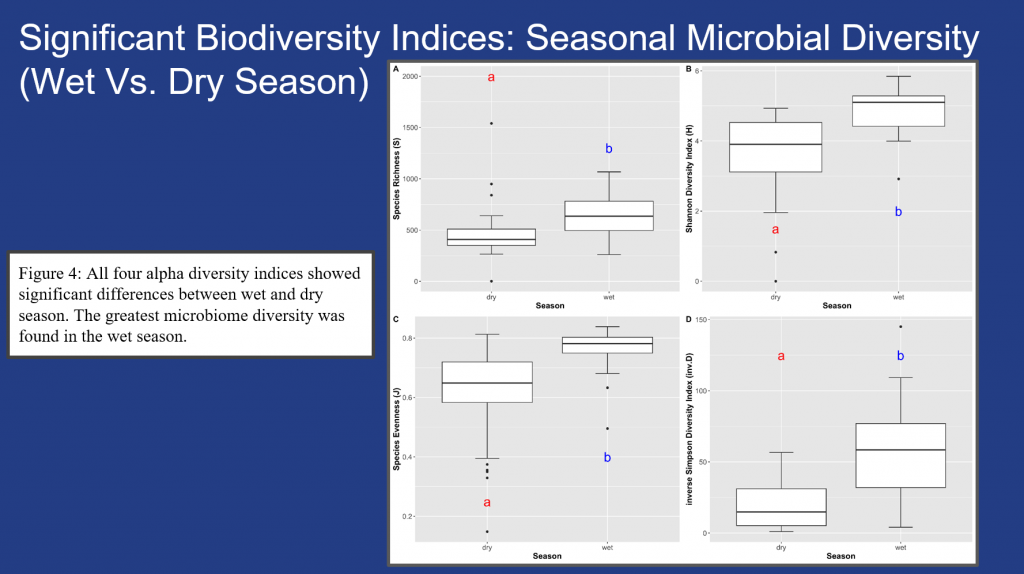
Significant seasonal shifts within the microbiome biodiversity were confirmed among the sites across alpha diversity indices and the wet season had more significant microbial diversity than the dry season across all the samples collected (Fig. 4).
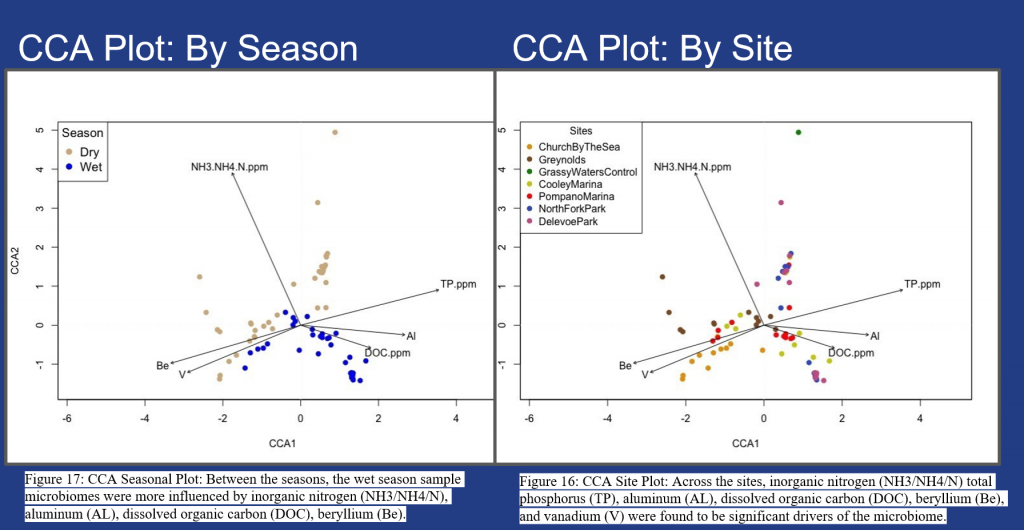
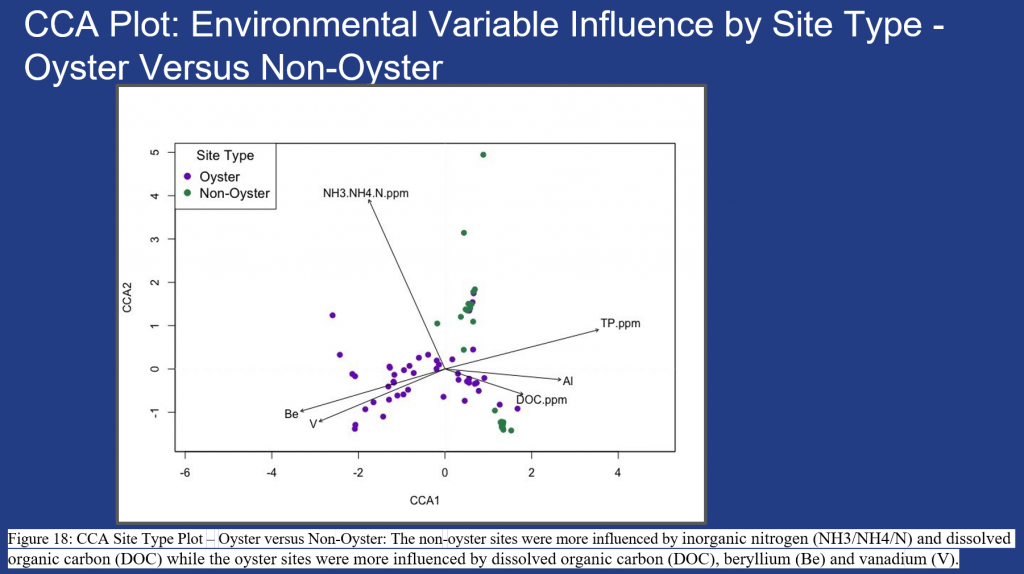
Figure 16 – 18, show seasonal and site specific environmental variables driving the microbiome at the study sites. Significant seasonal environmental drivers include inorganic nitrogen, dissolved organic carbon and total phosphorus and metals beryllium (Be), aluminium (AL) and vanadium (V), Fig. 16. Significant differences are shown with greater clustering of samples during the wet season (in blue) and dry season (in tan) within Fig. 17. Additional research is needed to determine the impact on fish and invertebrate species due to the metals (Be, AL & V) found within the sampled sites, Fig. 18.
Community Engagement
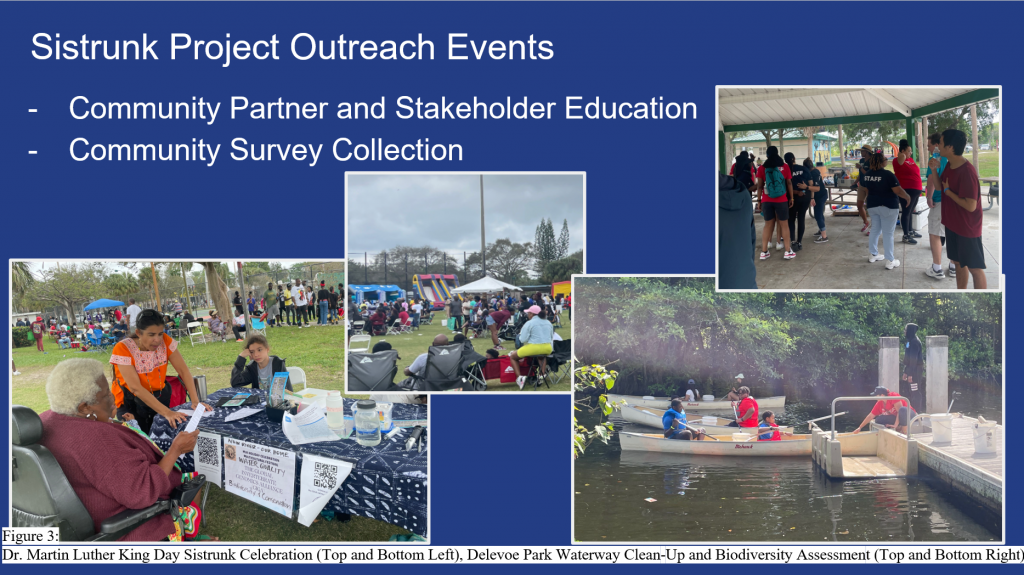
Citizen science, community input and community education intersect with the more research driven components of this study such as the microbial and water quality analysis. Over time, as oysters and other filter feeding species have been removed from the habitat with greater frequency, water quality has suffered. The community of focus in the New River: Our Home project, Sistrunk, has experienced water quality issues that have impacted the community’s ability to swim, fish and utilize the New River corridor. The study sites of Delevoe Park, North Fork River Park, and Cooley’s Marina are no exception with residents reporting fewer days with clear waterways, increased pollution and decreased fish and invertebrate biodiversity.
Several meetings were held to discuss the results of this study with the community to gather information as to how they, as citizen scientists, would like to contribute to future restoration of the Sistrunk sites. Surveys were collected at (2) public outreach days, January 2023 Dr. Martin Luther King Jr. Sistrunk Parade and Delevoe Park Waterway Clean-up. Per Dr. Tara Chadwick, Co-PI and community member, “Over the first 6 months of the project, 300 community members were educated on the links between environmental and human health. Of these, 40 completed a brief survey indicating an interest in addressing local water quality, biodiversity and health issues.” A diverse segment of the population was reached which included various age demographics. Survey questions included a range of environmental knowledge to use impact related. Residents were interested and engaged in the efforts. Input from residents, businesses and government officials was considered and included in this study.
Project information sharing included water chemistry data publication on publicly available websites and the inclusion of raw data in genetic databases such as NCBI.
As oysters are filter feeders, an increase in oyster populations within South Florida could help to reduce the high abundance of algal species within the waterways. This study supports that oyster populations are low within the regions studied and oyster restoration in South Florida could be considered as part of a natural solution implemented within local water quality improvement projects.
Resources and References
- https://www.broward.org/NaturalResources/Lab/Documents/pub_newriver_1.pdf
- https://floridadep.gov/dear/water-quality-evaluation-tmdl/documents/c-14-cypress-creek-canal-wbid-3270-c-13-west-middle (link to downloadable pdf)
- https://www.fortlauderdale.gov/home/showdocument?id=884 (2006)
- http://edr.state.fl.us/content/natural-resources/LandandWaterAnnualAssessment_2022Edition_Volume2.pdf (2022)
- Sea Level Solutions Day Citizen Science Project with FIU & City of Miami https://environment.fiu.edu/what-we-study/projects/slsc-citizen-science/
- SDG 4 priorities for urban coastal climate adaptation https://sdg.iisd.org/commentary/guest-articles/ocean-climate-platform-advocates-for-adapting-cities-to-sea-level-rise/ accessed 11.25.23 2:54 am
Save the Date
We are delighted to announce the selection of the Philippines as the location of GIGA’s 6th triennial conference. The will be held on the resort island of Boracay (the Visayas region), with talks, presentations, and workshops.
The official the GIGA VI conference website will be live shortly.
Tentative Program
- Sunday, 5 July 2026 (evening): conference welcome
- Monday, 6 July – Friday, 10 July: four half-day sessions in Boracay
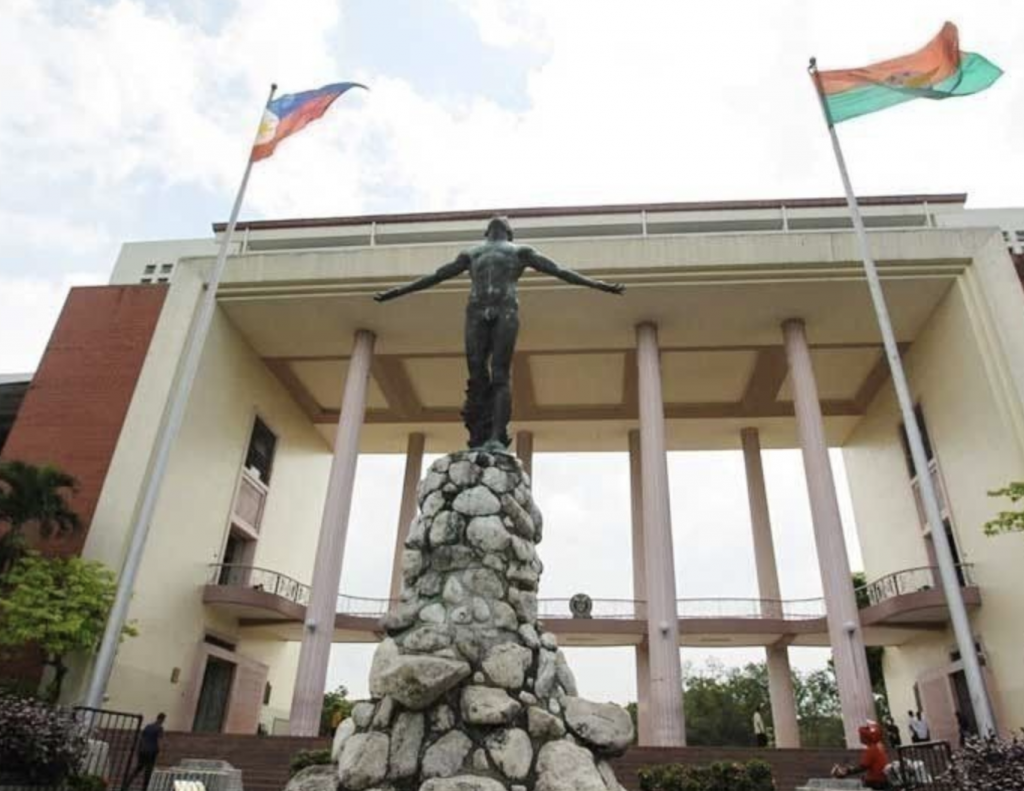
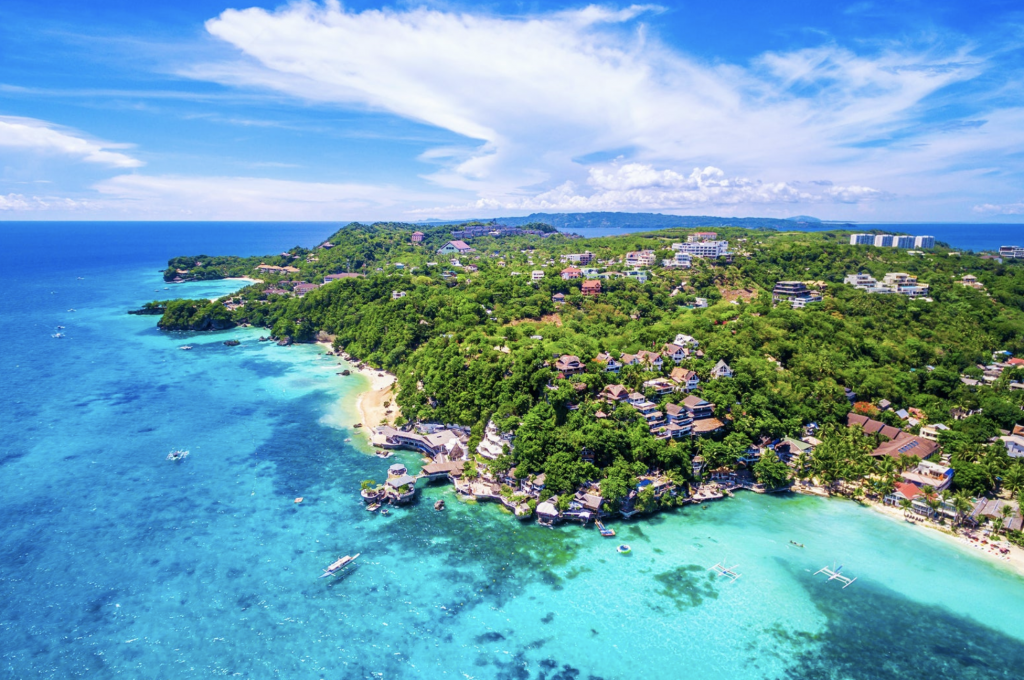
President: Carlos Prada (University of Rhode Island)
Executive Vice President of Conferences: Jean-Francois Flot (Université Libre de Bruxelles)
Executive Vice President of Scholarships/Early Developments: Sadye Paez (The Rockefeller University)
Executive Vice President of External Development/Fund Raising: Joe Lopez (Nova Southeastern University)
Graduate Student/Postdoc representatives: Lisa Mesrop (University of California, Santa Barbara), João Gabriel R. N. Ferreira (Universidade Federal do Rio de Janeiro)
Two New Sponge Genomes
New genome papers are out for Glass Sponges (Hexactinellida)!! This group of sponges is known for their unique silicate skeletal elements and deep-sea reefbuilding activities. Oopsacas minuta has a genome surprisingly devoid of metazoan core genes, while Aphrocallistes vastus is an important deep-sea reefbuilding species.
Oopsacas minuta
Santini S, Schenkelaars Q, Jourda C, Duchesne M, Belahbib H, Rocher C, Selva M, Riesgo A, Vervoort M, Leys SP, Kodjabachian L, Le Bivic A, Borchiellini C, Claverie JM, Renard E. The compact genome of the sponge Oopsacas minuta (Hexactinellida) is lacking key metazoan core genes. BMC Biol. 2023 Jun 19;21(1):139. doi: 10.1186/s12915-023-01619-w. PMID: 37337252; PMCID: PMC10280926.
Aphrocallistes vastus
Francis WR, Eitel M, Vargas S, Garcia-Escudero CA, Conci N, Deister F, Mah JL, Guiglielmoni N, Krebs S, Blum H, Leys SP, Wörheide G. The genome of the reef-building glass sponge Aphrocallistes vastus provides insights into silica biomineralization. R Soc Open Sci. 2023 Jun 21;10(6):230423. doi: 10.1098/rsos.230423. PMID: 37351491; PMCID: PMC10282587.
As of March 2022, GIGA operates as a 501(c)(3) organization. Contributions are 100% tax deductible under the law, and go to fund GIGA community efforts for research, education, and outreach in invertebrate genomics.
Donations can be made via PayPal: https://www.paypal.com/paypalme/GIGAIII
By Dr. Kate Castellano
Growing up on the coast of Connecticut, I have always been fascinated by the ocean and the many organisms that live below the surf. It wasn’t until I met a marine scientist on a trip to Belize that I became aware of marine research as a career possibility.
This discovery led me to the University of New England, where I earned my bachelor’s degree in Marine Science and began working in a research lab. There, I learned more about genetics and its utility in understanding species biology, adaption to extreme or changing environments and ability to aid conservation efforts.
After college, I wanted to build my genetic laboratory skills so before entering graduate school, I worked as a research associate at Yale University studying early development in zebrafish. With the goal of creating and utilizing genetic and genomic tools for understudied marine non-model organisms, I pursued a PhD at the University of Connecticut. My work, and recently defended PhD thesis, focused on two species of tunicates, Salpa thompsoni and Salpa aspera, that are experiencing rapid population explosions due to warming oceans which required the development of genomic tools.
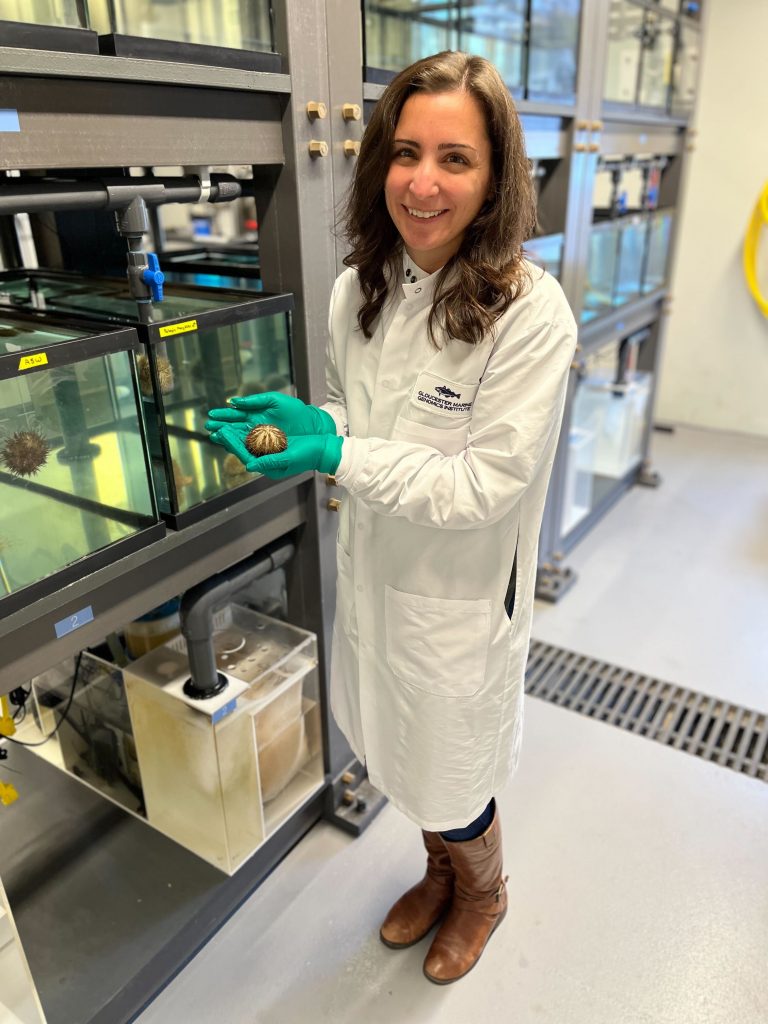
During my PhD, I received the first GIGA fellowship in Invertebrate Genomics which supported the genome assemblies of S. thompsoni and S. aspera and in turn revealed new genomic architecture important for gene regulation. The work I have done with GIGA’s support extends beyond the genomes of S. thompsoni and S. aspera becoming part of our genome workflow for other understudied marine species. This is important because genomic tools are still lacking for most marine organisms, making it difficult to truly understand their biology.
Currently, I am a Postdoctoral Scientist at the Gloucester Marine Genomics Institute where my research interests have also expanded to human health, focusing on understanding aging and longevity in the long-lived red sea urchin.
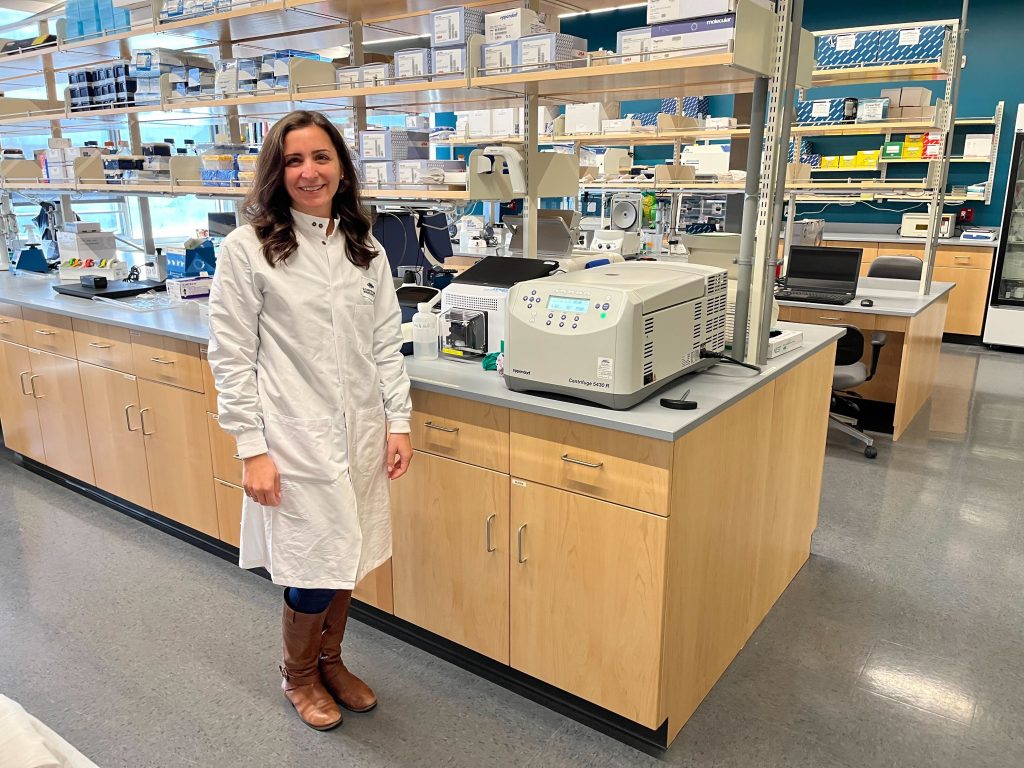
In addition, I am further developing sea urchins as a model and creating tools for functional genomics. My ultimate goal is to develop methods and pipelines for myself and others to establish more marine organisms as models through the creation of high quality genomic, transcriptomic and functional genomic tools to answer questions about basic biological functions, genome dynamics, adaptation and human health.
GIGA Board Elections Results
GIGA congratulates newly elected board members, and sends a deep thank you for retiring members.
Rotating positions include President, Executive VP for Conferences, Executive VP for Early Career Development, Executive VP for Development and Fundraising, and Student Representative.
GIGA thanks outgoing governing board (GB) members for their service to the Alliance (Joe Lopez, Heather Bracken-Grissom, Jean-François Flot, and Monica Medina).
Special thanks to Past President Joe Lopez for his dedicated leadership of the society!! Thanks to all nominees for their willingness to serve the community, and warm welcome the new GIGA Governing Board members:
President – Todd Oakley, University of California Santa Barbara
Executive Vice-President for Conferences – Vanessa González, Smithsonian Institution
Executive Vice-President for Early Career Development – Maria Carmen Ablan Lagman, De La Salle University
Executive Vice-President for Development and Fundraising – Joe Lopez, Nova Southeastern University
Student Representative – Kate Castellano, The Gloucester Marine Genomics Institute
The current Secretary (Kevin Kocot), Treasurer (Gonzalo Giribet), and Communications Director (Fabrizio Ghiselli) will continue their terms until the October 2023 election, according to the GIGA bylaws.
Fourth international meeting of the Global Invertebrate Genomics Alliance.
Registration will be open soon: https://giga4.sciencesconf.org/
Call for GIGA Officer Nominations
CALL FOR NOMINATIONS. The Global Invertebrate Genomics Alliance (GIGA) is seeking nominations for 5 officers of the GIGA Governing Board from its membership. Nominations of other members and self-nominations are encouraged. These officers will serve two-year terms beginning at the end of November 2021. The future and advancement of the society depend on its member’s participation, so please consider serving. The Governing Board generally meets quarterly, and frequently corresponds by email. The following positions are open:
President – The President will have the authority to negotiate collaborations and agreements, and then report back to the Governing Board and the Community of Scientists (COS) for full consensus. The President can sign formal agreements and contracts approved by the GB and/or the COS. Regular GIGA conferences will likely be led by local organizing committees, but the President can assist in planning the regular GIGA conference, along with the Retiring President and Conference Vice-President.
Executive Vice-President for Conferences – In consultation with the President, shall be responsible for the administration, fundraising for, and operation of, the Community of Scientists in accordance with the existing constitution, bylaws, and policies.
Executive Vice-President for Development and Fundraising – Will make efforts to raise funds for the GIGA mission, and direct donations to the GIGA donor account.
Executive Vice-President for Early Career Development – Shall develop and establish educational opportunities to train students and early career scientists, relevant to the mission of GIGA.
Student Representative – Will serve as a liaison to the student communities related to GIGA. The GIGA By-Laws are at https://www.giga-cos.org/…/10/GIGAConstitution2020.pdf
Please send your nominations to Collinst@fiu.edu by Friday, October 22nd, 2021. If nominating other members, please copy them on your nomination e-mail. Currently serving officers may be nominated. Each self-nomination or accepted nomination should include a short biographical sketch of the nominee and a vision statement (up to 1 page) for the respective position.
